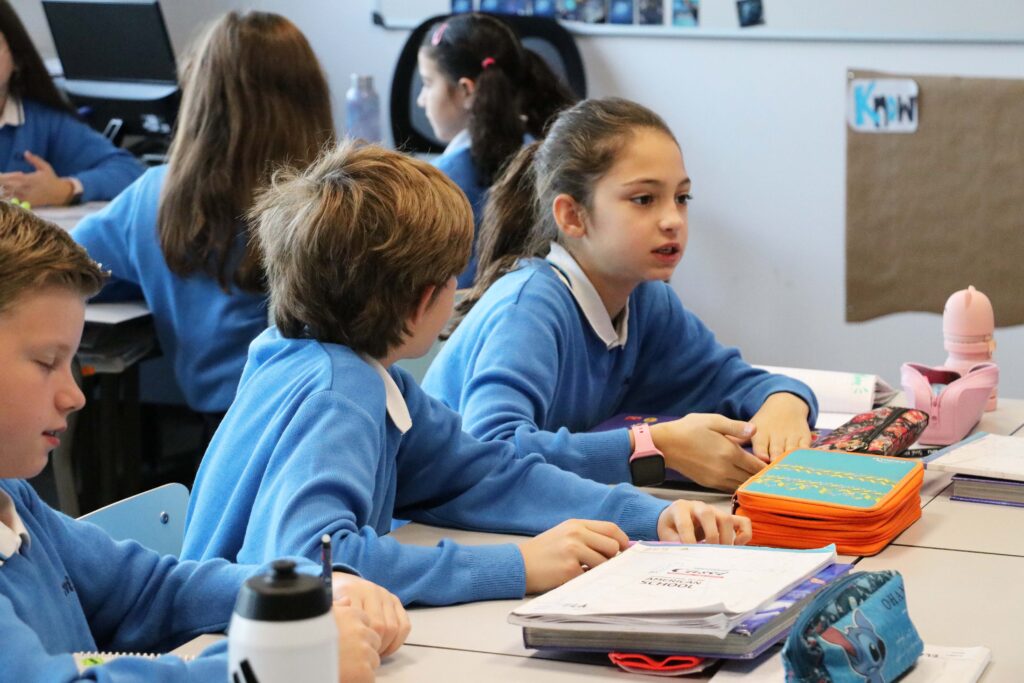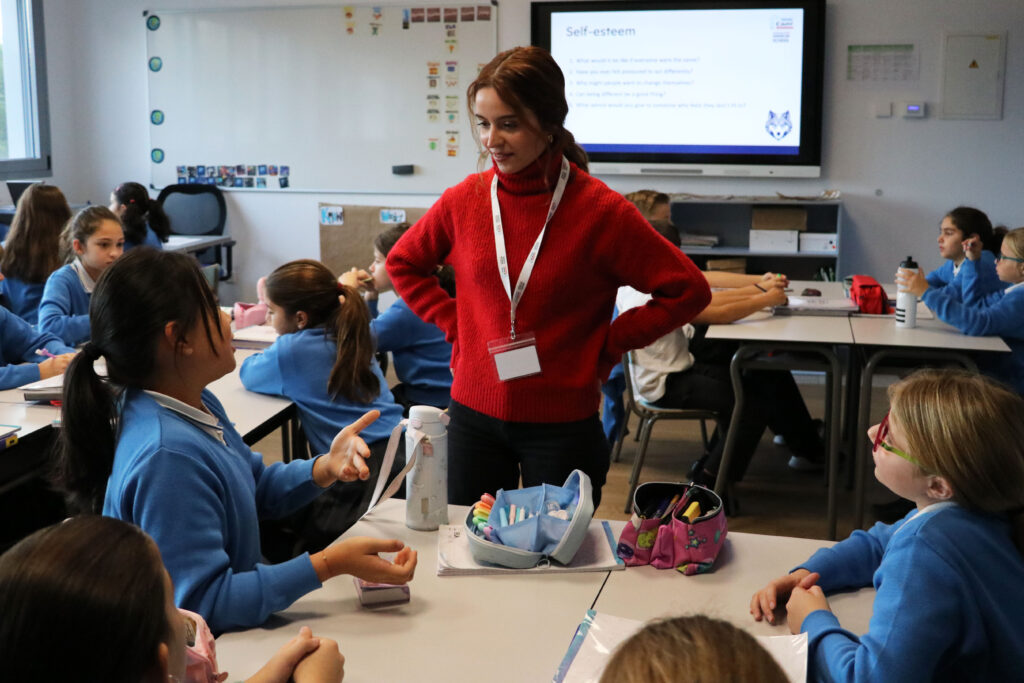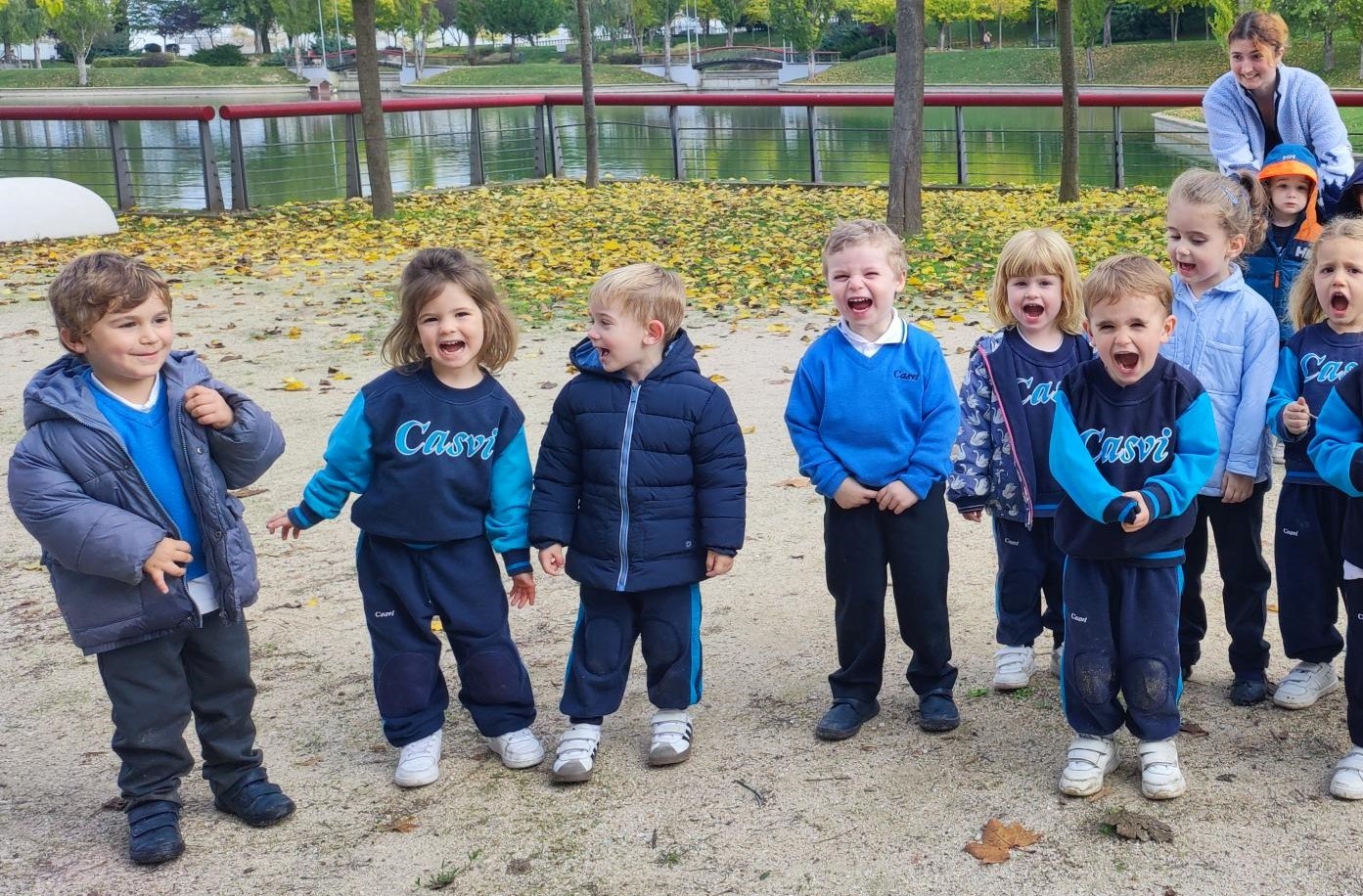At Casvi Tres Cantos School, we consider that the emotional development of our students is as important as their academic learning. Among the values we promote, self-esteem is at the heart of it, as it is the foundation for children to grow up to be confident, resilient and happy people.
Self-esteem, understood as the value and respect that each person feels for themselves, begins to develop from the first years of life. In this blog we will delve into its importance, how to identify signs of healthy self-esteem
Why is Self-esteem Important in Children?
A solid self-esteem in children allows them to acquire the security to try new things without fear of failure. Children are motivated to do their best, knowing that their effort is worthwhile. This confidence also allows them to face mistakes with a positive attitude, seeing them as an opportunity to learn and improve. Thanks to good self-esteem, children feel better able to face challenges both in school and in their daily lives and in their relationships with others. Their self-worth gives them the strength to keep going, even when things don’t go as expected.
As shown by the magazine Nemours kids health. Children with low self-esteem feel insecure and have difficulty integrating with others. They may allow themselves to be treated badly and have a hard time defending themselves. They tend to give up easily and have trouble accepting mistakes or failures, which affects their performance and confidence.
Activities to Strengthen Self-esteem in Children
At Casvi Tres Cantos we work every day to promote self-esteem in our students through fun, inclusive and educational dynamics. Here are some ideas that you can also practice at home:
1) Praise the effort, not just the result
It’s critical to teach kids to value the process, not just the ultimate success. Praising effort shows that it’s not always the result that’s important, but how they strive to achieve their goals. Be sure to highlight phrases like:

- “How well you tried!”
- “I’m proud of how you worked on this, regardless of whether it went well or badly.”
These types of comments not only reinforce self-esteem in children, but also encourage children to keep trying, even when they don’t achieve what they expected. According to experts in child psychology, recognizing effort fosters a growth mindset, in which children learn to see challenges as opportunities to improve, rather than giving up after failure. This technique is based on the growth mindset theory proposed by Carol Dweck, which holds that people can develop their skills through effort and perseverance.
2) Group dynamics: The Circle of Praise
Group dynamics are great for bolstering collective self-esteem and fostering empathy among children. One of the most effective activities is the praise circle, in which each child has the opportunity to say something positive about a peer. This exercise promotes a positive and respectful attitude towards others and helps children feel valued. You can follow these steps:
- Create a circle with the children.
- Each child should say something positive about the person to their right, whether it’s a comment about their character, their abilities, or something they’ve recently noticed.
- Encourage children to be specific and sincere in their praise.
3) Creative and self-expression activities
Creative activities, such as drawing, writing, or drama, are great for children to express their emotions and thoughts. Fostering spaces where children can create without fear of judgment allows them to develop greater self-esteem. An exercise such as creating an “achievement box,” in which children keep reminders of their successes (drawings, assignments, or positive notes), reinforces their positive perception of themselves.
How Can Parents Help Build Self-esteem in Children?
Parents play an essential role in developing their children’s self-esteem, providing them with unconditional love and avoiding comparisons with others. Encouraging autonomy, praising effort and not just the result, and teaching them to handle mistakes as learning opportunities helps them feel valuable and capable. In addition, creating a positive environment where their emotions are listened to and respected, as well as setting realistic and achievable expectations, allows them to develop self-confidence and face challenges with resilience and security.
Through these actions, parents reinforce not only their children’s self-esteem, but also essential skills for their emotional development. Teaching them to celebrate their accomplishments, big or small, and to face difficulties with a positive attitude creates a solid foundation for their future well-being. This constant support at home fosters children who are confident, optimistic, and prepared to face life’s challenges with confidence and determination.
Guidance at Casvi Tres Cantos

At Casvi Tres Cantos, we firmly believe that each child is unique and has great potential. We promote an education based on respect, effort, and autonomy, creating an environment where each child feels valued and supported. Our goal is to help our students build strong self-esteem, which allows them to face challenges with confidence and resilience. Together, parents and educators, we work so that each child grows up confident in themselves, learning to value both their achievements and their efforts.
For this reason, from our Guidance Department, we are committed to the comprehensive development of our students. Every activity, from classes to outdoor outings, aims to help children grow up confident and happy. In addition, we promote values such as empathy, respect, responsibility, and teamwork, essential for their formation as global citizens and committed to the world around them.
As part of this mission, our counselor, Eva Jiménez, carries out activities of this nature with students throughout the year. For example, recently, she has carried out a special activity with Grade 5 students to promote their self-esteem and strengthen their confidence. During this activity, students participated in dynamics that allowed them to reflect on their abilities, recognize their achievements, and learn to value themselves. These types of interventions, which include practical and reflective exercises, are essential to support children in their emotional growth and prepare them for a future full of security and success.
Self-esteem in Little Children: Get to Know Our Preschool & Kindergarten
At our Preschool, we know that the first years of life are essential for building a strong self-esteem in children. Positive self-esteem from infancy allows them to develop confidence in their abilities, face challenges with determination, and establish healthy relationships with others. For this reason, we work with methodologies that promote confidence, respect, and the valuing of each child as unique.
Visit us and get to know our Preschool & Kindergarten at Casvi International American School!

